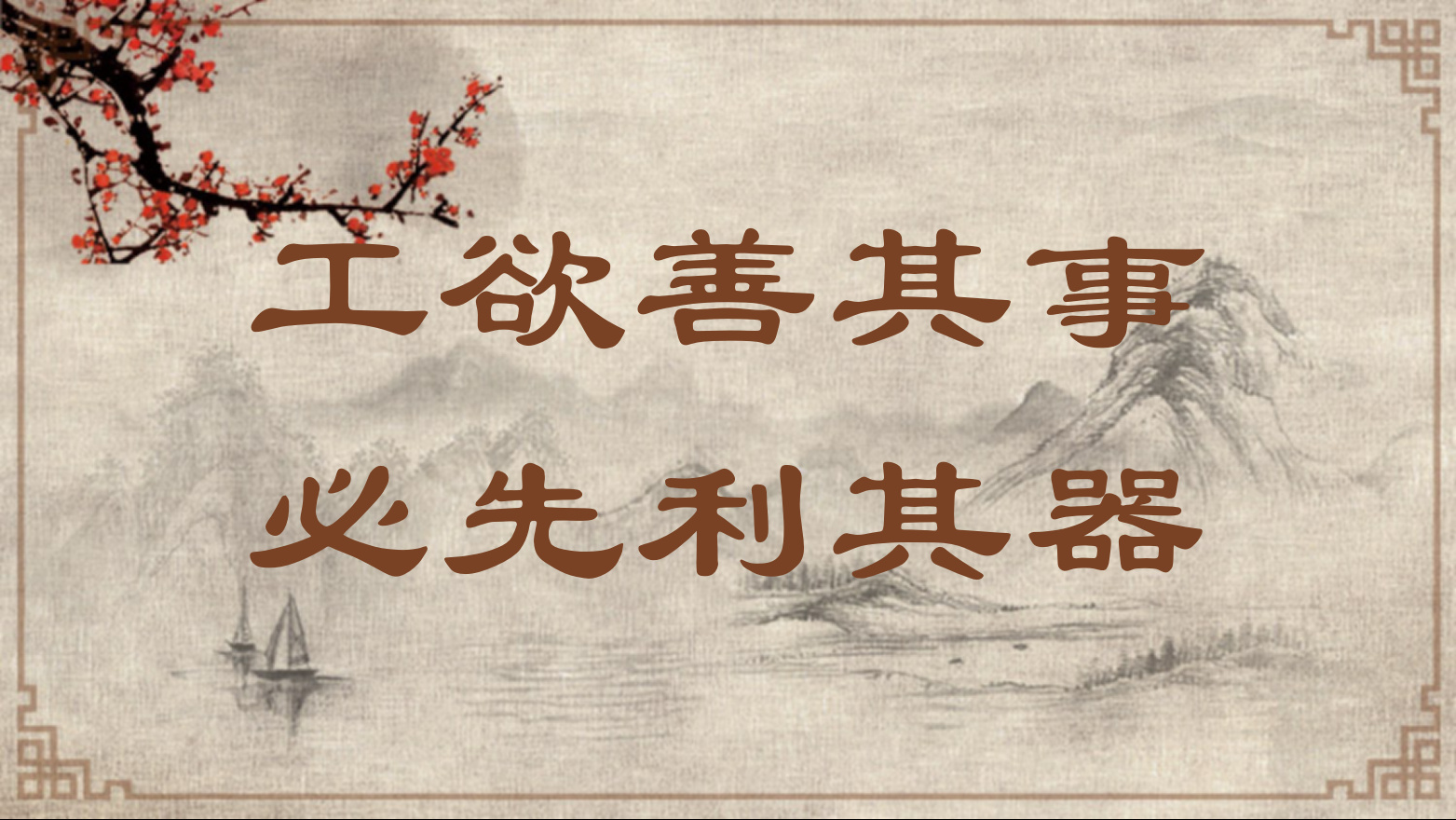工欲善其事,必先利其器
A Craftsman Must Sharpen His Tools to Do His Job

工匠想要很好地完成工作,必须先把工具弄得锋利好用。这是《论语·卫灵公》中记载的孔子(前551—479)的话。孔子本意是说,上层社会中有才能、有仁德的人是实现仁德理想的“利器”,为他们做事,和他们结为朋友,才能得到实现仁德理想的机会,有利于国家和社会。后来多用于比喻要做好一件事,准备工作与工作的手段、方法是很重要的。其中隐含的道理是:目的决定手段的选择,手段决定目的的实现。
This saying by Confucius (551-479 BC) is recorded in The Analects. By this Confucius originally meant that talented and virtuous people in the upper class were "tools" for realizing the ideals of benevolence. Working for them and becoming friends with these people was an opportunity to realize the ideals of benevolence in the interest of the country and society. Later, this concept came to be used as a metaphor meaning that to do something well, one needs to make preparations. The implied reasoning of this saying is as follows: objectives determine the choice of methods, and methods determine the realization of objectives.
引例 Citations:
◎子曰:“工欲善其事,必先利其器。居是邦也,事其大夫之贤者,友其士之仁者。”(《论语·卫灵公》)
孔子说:“工匠想要很好地完成工作,必须先把工具弄得锋利好用。住在一个国家,要为有才能的大夫做事,与有仁德的士人交朋友。”
Confucius said, "A craftsman must sharpen his tools to do his job. When you are in a state, you should serve its capable officials and befriend the virtuous people." (The Analects)
◎古称:“工欲善其事,必先利其器。”盖士卒犹工也,兵械犹器也。器利而工善,兵精而事强,势则然矣。(曾公亮、丁度《武经总要·前集》卷十三)
古人说:“工匠想要很好地完成工作,必须先把工具弄得锋利好用。”士兵就像工匠,兵器就像工具。工具好用,制作就做得好;兵器精良,打仗就占优势,这是必然的道理。
An ancient saying goes, "A craftsman must sharpen his tools to do his job." Soldiers are like craftsmen, and their weapons are like tools. Good tools enable good work; good weapons enable their users to take a superior position in battle. This is the tested truth. (Zeng Gongliang and Ding Du: Military Essentials)
推荐:教育部 国家语委
供稿:北京外国语大学 外语教学与研究出版社
责任编辑:刘怿莎





